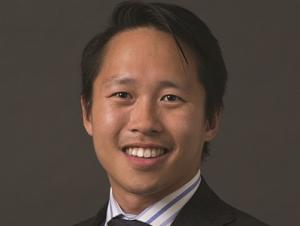UK Court of Appeal: Lenovo must pay more money to InterDigital
Today the UK Court of Appeal ruled Lenovo must pay five cents per unit more to InterDigital than ordered by the UK High Court. Although InterDigital prevailed with its demand for a higher licence rate, the SEP holder's big blow against the Chinese implementer failed to materialise. Whether the ruling will help SEP holders or implementers remains to be seen.
12 July 2024 by Mathieu Klos
Lenovo must pay more money for a FRAND licence to InterDigital than was previously determined. The decision was handed down this morning by the UK Court of Appeal under the lead of presiding judge Richard Arnold. Accordingly, Lenovo must pay an overall sum of $0.225 per unit to InterDigital (case IDs: CA-2023-001492 for InterDigital and CA-2023-001489 for Lenovo).
In his ruling, Richard Arnold set a unit rate of $0.30. He also raised the adjustment ratio slightly to 0.74. “Multiplying $0.30 by 0.75 gives a per unit figure for Lenovo of $0.225. Multiplying that figure by 792,571,429 units gives a total of $178.3 million. I will ask the parties to calculate the interest due on that figure at the judge’s rate of 4% compounded quarterly,” said Arnold in the ruling.
The High Court had set a unit rate of $0.24 and an adjustment ratio of 0.728. The combined rate was therefore $0.175 per unit. The High Court ordered Lenovo to pay InterDigital $138.7 million plus $46.2 million in interest. Both parties had appealed against this. The Court of Appeal combined both appeals. The case concerned a 3G, 4G and 5G portfolio licence.
More but not all
InterDigital’s most important reason for appealing was to seek an increase in the FRAND rate, and here it was successful. However, the judges did not want to grant the SEP holder more money.
InterDigital had also argued that the first instance judge should have found, and declared, that the company was a willing licensor. Here, however, Richard Arnold and his two colleagues did not agree. The judgment states, “It is not necessary to reach any conclusion on this question, because, even if InterDigital was a willing licensor, InterDigital has not identified any purpose that would be served in this court making a declaration to that effect. In the circumstances that now prevail, the past willingness or otherwise of both InterDigital and Lenovo is simply irrelevant. As I have explained above, the only question is what sum of money is FRAND. Subject to any further appeal to the Supreme Court, that question has now been resolved.”
Nevertheless, InterDigital is satisfied with the judgment. Josh Schmidt, chief legal officer at InterDigital, says, “This decision better recognises the value of our cellular wireless innovation and gives InterDigital another court win in our licensing dispute with Lenovo.”
It is unclear whether InterDigital or Lenovo will appeal to the UK Supreme Court.
Disappointed but not dissatisfied
John Mulgrew, vice president, deputy general counsel and chief intellectual property officer at Lenovo, also welcomed today’s judgment. He says, “We are pleased with the court’s commitment to confirm fair, reasonable, and non-discriminatory terms for licensing, and are encouraged by what this decision means for ongoing negotiations with InterDigital, wider industry IP litigation cases, and most importantly, how this facilitates the proliferation of affordable innovation to customers around the world.”
Mulgrew adds, “Given the decision is far closer to Lenovo’s original position than InterDigital’s, we believe this is a further win for Lenovo and reinforces our continued commitment to FRAND licensing and being a willing licensee in the face of supra-FRAND offers and behavior.”
However, several of Lenovo’s arguments were unsuccessful. Lenovo based its appeal on two key points. Firstly, that the High Court had miscalculated the royalties for the past, because he applied to the FRAND rate all sales made by Lenovo from 2007 onwards. Instead, the barristers argued, Mellor should only have calculated sales since the third quarter of 2023. The Court of Appeal rejected this claim.
Secondly, Lenovo also challenged Mellor’s decision to grant interest to InterDigital, at 4% compounded quarterly, for the whole period for which royalties were awarded. Lenovo considers this to be wholly unjustifiable. The Court of Appeal also disagreed with Lenovo on this point.
Speedy ruling from Court of Appeal
The judgment comes just four weeks after an unusually long and complex appeal hearing. Judges Richard Arnold, Christopher Nugee and Colin Birss heard the FRAND-rate dispute from 10 to 14 June.
Usually patent hearings at the Court of Appeal last up to two days. But the appeal against High Court judge James Mellor’s judgment in InterDigital vs Lenovo concerned not only the calculation of FRAND rates but also London’s future position in global SEP litigation.
- Christopher Nugee
- Richard Arnold
- Colin Birss
Independent judges panel
Today’s decision was made by an internationally renowned panel. Richard Arnold took the lead. He has heard countless patent cases, though he had not yet had the chance to adjudicate in an SEP case. Thanks in part to his Unwired Planet ruling, Colin Birss is one of the best-known UK patent judges. In 2017 he handed down the landmark ruling in Unwired Planet vs Huawei, which established London’s reputation as the go-to forum for FRAND-rate setting.
Christopher Nugee, on the other hand, has an extensive commercial background, rooted in property and business law. London lawyers describe the three judges as “extremely competent” and “intellectually independent”.
During the hearing the judges probed both parties with a multitude of questions, thus demonstrating their expertise. At its conclusion, however, trial observers were unable to decide whether one of the parties had the upper hand. Nugee and Birss agreed in principle with Arnold’s judgment but added numerous comments and observations.
Questions over calculation
In essence, the two opponents wrestled before the Court of Appeal over James Mellor’s calculation of the licence rate. InterDigital had originally demanded $337 million. The High Court, on the other hand, had set $138.7 million plus $46.2 million in interest. Mellor’s first-instance judgment had declared both parties’ previous offers as non-FRAND. Later in 2023, Mellor released two further decisions in which he declared Lenovo the “overall winner” of the FRAND trial.
In the appeal, Lenovo asked the judges to set the FRAND lump sum at $108,900,000. Now, according to a press release from InterDigital, Lenovo will have to pay approximately $240 million in licence fees for the period between 2017 and the end of 2023.
The ruling therefore fell short of InterDigital’s expectations, even though the SEP holder prevailed on most points of its appeal.
Global significance
Mobile communications patents and the associated licences are a global billion-dollar business. In SEP cases, patent courts in the US, UK, China and Germany aim to provide clarity, usually playing a central role in these battles. It is not yet clear what role the new Unified Patent Court, which has now received a number of SEP lawsuits, will play in the future.
Up to now, the UK High Court is the only court in the world to have set a global FRAND rate.
Following Colin Birss’ ruling in Unwired Planet vs Huawei, SEP holders seeking to enforce a favourable FRAND rate regarded London as particularly attractive. The tables were turned, however, when James Mellor handed down his ruling in the dispute between InterDigital and Lenovo in March 2023.
Mellor’s judgment was the first time the High Court judge was able to apply the Birss ruling. It had led patent experts to infer the UK High Court would tend towards an implementer-friendly position in the future and thus potentially deter SEP owners from suing there.
SEP holders want to achieve the highest possible FRAND rate. With today’s ruling, the UK patent courts are moving a little more in the direction of an SEP-holder-friendly position.
InterDigital’s chief legal officer Josh Schmidt says, “This decision takes a very important step towards achieving a balance between innovator and implementer by making it harder for implementers like Lenovo to delay taking a licence to patented technologies that are the bedrock of connected devices.”
However, detailed analysis of the reasoning over the next few days will probably show whether it is enough to attract SEP holders to London en masse.
Lenovo initiates second trial
London’s attractiveness for disputes over FRAND-rate setting also depends on other cases. Lenovo has initiated a second FRAND trial in its battle with InterDigital. Lenovo has asked the UK High Court to set a global licence rate for InterDigital’s entire portfolio, which includes implementation patents as well as SEPs. The court is thus to calculate the FRAND rate from 2024 onwards.
But the current InterDigital vs Lenovo battle is not the only significant case in determining the future importance of London courts for SEP litigation.
- Adrian Speck
- Alexandra Brodie
- Mark Chacksfield
In other disputes, implementers have asked the UK High Court to order an interim licence until it makes a final ruling on the FRAND rate. The interim licence is intended to prevent SEP holders from enforcing injunctions issued by continental European courts and the UPC.
Lenovo, for example, has also applied for an interim licence in its dispute with Ericsson. The court will decide on the application in October.
Just a week ago, the UK High Court ruled that Xiaomi is not entitled to an interim licence in its dispute with Panasonic.
High-calibre advisors
In the Court of Appeal hearing, barrister Adrian Speck from 8 New Square represented InterDigital supported by Mark Chacksfield and Tom Jones. A Gowling WLG team around Alexandra Brodie, Michael Carter and Olivia Nimmo instructed the barristers.
- Daniel Alexander
- Nicola Dagg
- Daniel Lim
Lenovo first responded to the arguments from InterDigital with the support of barristers Daniel Alexander from 8 New Square and James Segan from Blackstone Chambers, and then presented its appeal. A Kirkland & Ellis team around Daniel Lim, Nicola Dagg and Oscar Robinson instructed and supported the barristers.
©All images of attorneys from the respective law firms









